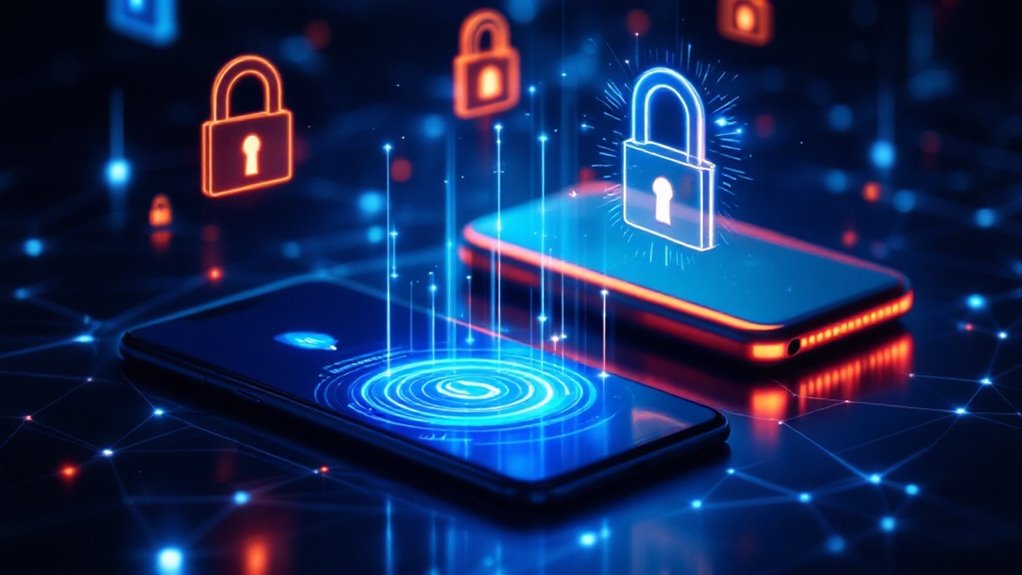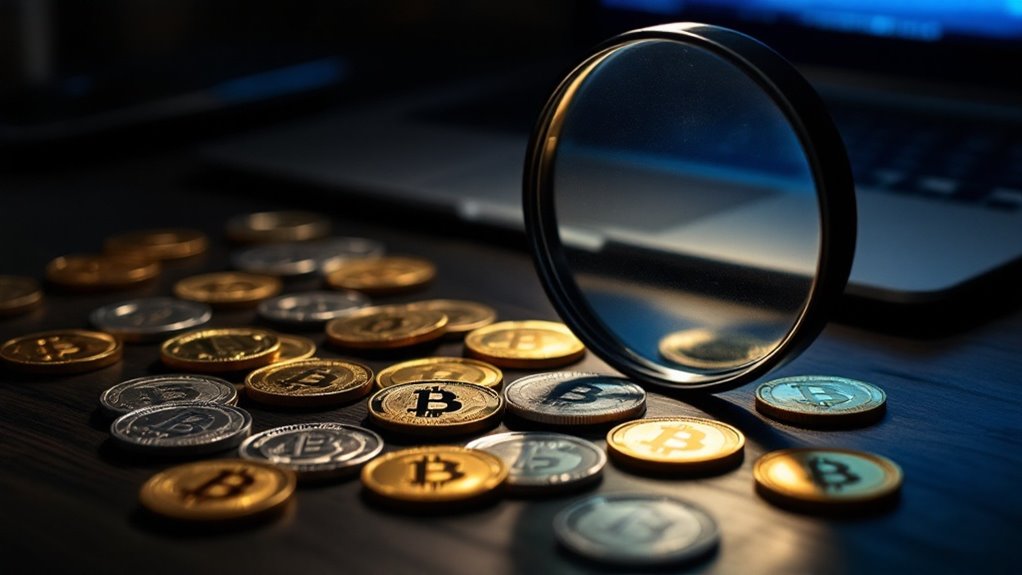Two-factor authentication (2FA) serves as a critical defense shield for cryptocurrency assets, requiring users to verify their identity through two distinct methods. While passwords form the first layer, a second verification step—typically through authenticator apps or hardware tokens—creates a formidable barrier against cyber threats. Modern 2FA has evolved beyond vulnerable SMS codes, embracing more sophisticated solutions that balance security with user convenience. This dual-layer protection approach represents just the beginning of safeguarding digital wealth in an increasingly complex crypto landscape.

While cryptocurrency has revolutionized the financial landscape with its promise of decentralized wealth, securing these digital assets remains a vital challenge that keeps investors awake at night. Like a second lock on a precious vault, Two-Factor Authentication (2FA) has emerged as an essential guardian of crypto holdings, requiring users to prove their identity through two distinct forms of verification before gaining access to their digital treasures. The effectiveness of 2FA depends on combining challenge-response questions during authentication for enhanced protection.
Gone are the days when a simple password could protect valuable assets. Modern crypto platforms now combine something you know (your password) with something you possess (like your smartphone or hardware key). This digital dance of verification might seem like an extra hassle, but it's as important as wearing a seatbelt while driving through the wild west of cryptocurrency trading. With cryptocurrency exchanges being prime targets for cybercriminals, implementing strong 2FA protection has become absolutely critical. For maximum security, experts recommend using cold wallets in conjunction with 2FA for long-term asset storage.
The arsenal of 2FA methods has grown increasingly sophisticated. While SMS codes were once the gold standard, they've shown vulnerability to clever tricks like SIM swapping – imagine a digital pickpocket borrowing your phone number instead of your wallet. Savvy investors now lean toward authenticator apps or hardware tokens, which function like miniature fortresses for their verification codes.
Implementation of 2FA isn't just about ticking a security box; it's about creating a robust defense system that can withstand the relentless siege of cyber threats. Users must carefully balance convenience with protection, much like choosing between a heavy duty safe and a quick-access lockbox. The most secure methods sometimes cause friction, leading some users to disable their protective measures – a dangerous gamble in the high-stakes crypto world.
Looking ahead, authentication methods are evolving faster than a blockchain can process transactions. The future promises even more sophisticated solutions, from behavioral analysis that recognizes how you type to AI systems that can spot an impostor from a mile away. Multi-factor authentication might soon become as common as carrying multiple forms of ID, while passwordless solutions could make traditional logins seem as outdated as paying with gold coins.
In this digital age, the old saying holds true: better safe than sorry, especially when your crypto fortune hangs in the balance.
Frequently Asked Questions
Can Two-Factor Authentication Be Hacked or Bypassed?
Two-factor authentication can be compromised through various methods including phishing, man-in-the-middle attacks, SIM swapping, social engineering, and exploiting implementation vulnerabilities. However, it still provides significant additional security over passwords alone.
What Happens if I Lose My Phone With 2FA Authentication Codes?
If someone loses their phone with 2FA codes, they can recover access using backup codes, alternative authentication methods, or contacting service providers directly. Immediate action is necessary to prevent unauthorized access.
Does Using 2FA Slow Down My Cryptocurrency Trading Process?
Two-factor authentication does introduce slight delays in cryptocurrency trading due to extra verification steps. While authenticator apps are faster than SMS codes, frequent traders may notice impact during time-sensitive transactions.
Which Authentication Apps Are Most Secure for Crypto Exchanges?
Google Authenticator and Authy lead in security for crypto exchanges. Microsoft Authenticator and Duo Mobile offer additional features like biometric login. Hardware keys like YubiKey provide the highest level of protection against threats.
Can I Use the Same 2FA Method Across Multiple Cryptocurrency Platforms?
Using the same 2FA method across multiple cryptocurrency platforms is technically possible, but security experts recommend diversifying authentication methods to reduce risks associated with a single point of failure.









